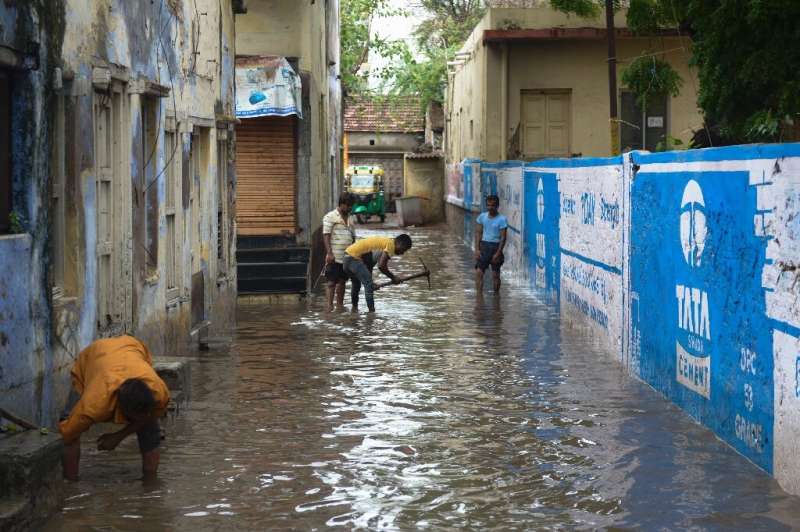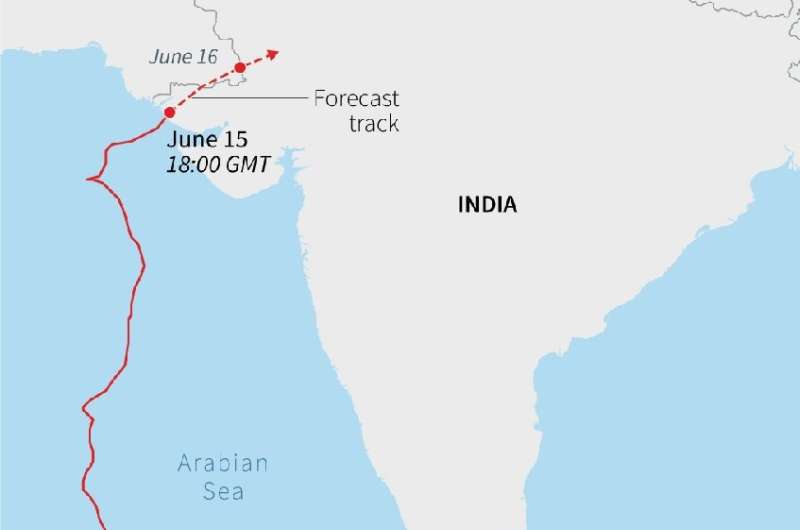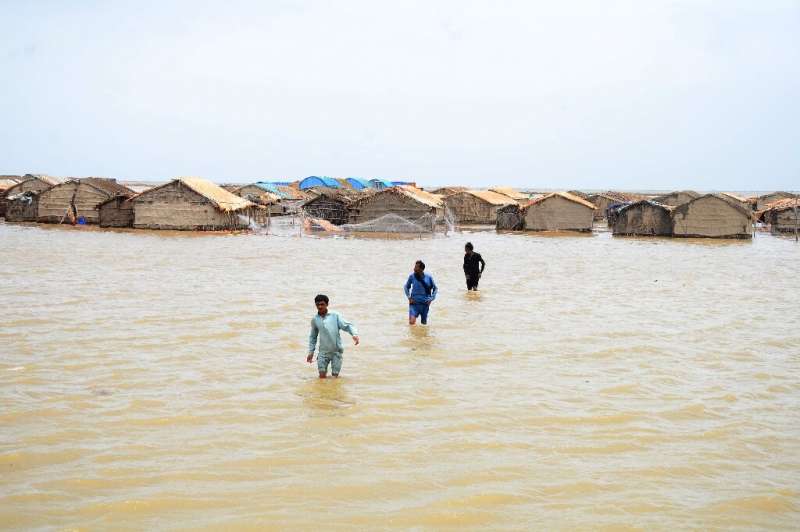Cyclone Biparjoy leaves destructive trail on Indian coast

Cyclone Biparjoy tore down power poles and uprooted trees Friday after pummeled the Indian coastline, though the storm was weaker than feared and there were no immediate reports of casualties.
More than 180,000 people in the Indian state of Gujarat and Pakistan’s neighboring Sindh province fled the path of Biparjoy—which means “disaster” in Bengali—before it made landfall on Thursday evening.
The storm packed sustained winds of up to 125 kilometers (78 miles) per hour as it struck—but weakened overnight, with Indian forecasters expecting it to calm into a moderate low-pressure system by late Friday.
Hundreds of electricity poles were uprooted along the coast, cutting power to most of the area, a spokesperson for Gujarat’s government told AFP.
Several hundred trees were also uprooted and emergency teams were struggling to access villages cut off by roadside debris.
No casualties were reported overnight, the office of the state’s relief commissioner said.
In Gujarat, more than 100,000 people had been moved from the storm’s path before it struck, the state government said, as well as 82,000 others in Pakistan.
Biparjoy was expected to slow to maximum sustained winds of 60 kilometers per hour before noon (0630 GMT), India’s weather bureau said.

Pakistan climate change minister Sherry Rehman tweeted on Friday morning that her country had been “largely spared the full force” of the storm.
But residents stayed bunkered down as more than 30 centimeters (12 inches) of rainfall was forecast for some coastal areas of Pakistan on Friday and Saturday, with storm surges of up to 2.5 meters (8 feet).
Shops were closed early on Thursday evening in Pakistan’s city of Badin and the usually bustling streets emptied as night fell.
“Everybody is immensely fearful,” 30-year-old government clerk Iqbal Mallah told AFP on Friday.
‘It’s chaos everywhere’
In the early morning, heavy winds were gusting and puddles blotched the roads, as concerns remained despite the storm proving less severe than forecast.
“Shops are closed down early, people prefer to stay at home… it’s chaos everywhere,” said Abdullah Soomro, a hotel manager in Badin.

Cyclones—the equivalent of hurricanes in the North Atlantic or typhoons in the Northwest Pacific—are a regular and deadly menace on the coast of the northern Indian Ocean, where tens of millions of people live.
Scientists have warned that storms are becoming more powerful as the world gets warmer with climate change.
Roxy Mathew Koll, a climate researcher at the Indian Institute of Tropical Meteorology, said cyclones derive their energy from warm waters, and that surface temperatures in the Arabian Sea were 1.2 to 1.4 degrees Celsius warmer than four decades ago.
© 2023 AFP
Citation:
Cyclone Biparjoy leaves destructive trail on Indian coast (2023, June 16)
retrieved 16 June 2023
from https://phys.org/news/2023-06-cyclone-biparjoy-destructive-trail-indian.html
This document is subject to copyright. Apart from any fair dealing for the purpose of private study or research, no
part may be reproduced without the written permission. The content is provided for information purposes only.
For all the latest Science News Click Here
For the latest news and updates, follow us on Google News.

